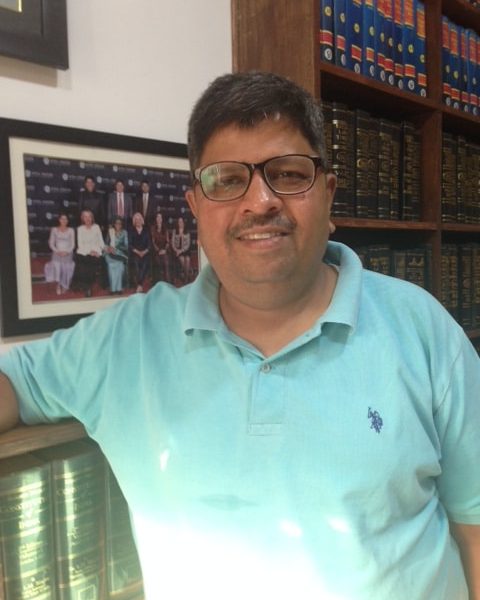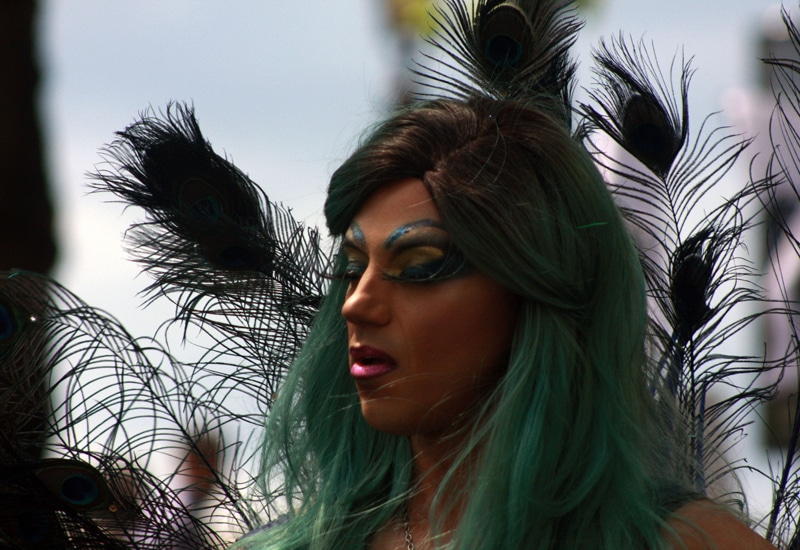
NEW YORK (WOMENSENEWS)- Ongoing fighting among rebel groups has stifled reconciliation in the Democratic Republic of Congo, a country recovering from conflicts that have claimed as many lives as World War II.
The country is notorious for its high rate of sexual violence in conflict zones. So far, however, the International Criminal Court has not found any suspect guilty of rape in its DRC conflict proceedings.
As the international court currently tries Bosco Ntaganda, a former rebel commander, on charges of rape in The Hague, women's groups in the DRC grapple to secure justice for rape survivors at the local level by working with judges who travel the country in a system of "mobile justice."
Julienne Lusenge, a leading Congolese activist, heads the Female Solidarity for Integrated Peace and Development, SOFEPADI, a coalition of 40 women's organizations fighting to end sexual violence. The group broadcasts information about women and their rights on local radio stations, urging them to seek their help if they have been raped or assaulted. A veteran radio journalist, Lusenge saw the need for documenting rapes amid the conflict and teamed up with other women to start the group in 2000. Lusenge met with Women's eNews while she was in New York City recently.
1. You emphasize the importance of women helping other women. Please elaborate.
In the situation of our country, we talk about women who were victims of sexual violence – I think it might be better to talk about the solidarity of Congolese women. If you ask each woman how she got to [our service,] she'll say, "I came to this service because I heard about it through my neighbor woman, my sister, my aunt, my cousin . . . "
2. How does SOFEPADI help survivors of rape and sexual assault seek justice through your mobile court system?
As soon as there is a case of rape that happens in the villages, the women come to us… We take them first for medical care and then to the judicial system because in the first 72 hours we want women to be treated so that they won't become pregnant and to prevent AIDS. We have a clinic that offers all the services to women in the same place. More than 900 people [come to the clinic] a month and in the 900 people who come, 5 percent are victims of sexual violence.
We pay the court costs because in our country you have to pay to go through the court system.
We go to the village where the crime or the misdemeanor has happened [and bring] the judge, the magistrate, the clerk, the victim and the witnesses. And then we invite the community and mobilize them to come and be present at these hearings. Because the other courthouses are so far away from the villages, people who are grown-ups, 40, 50 years old, have never even seen a judge and that's what makes it so that the population can't find any justice within their communities. And now we are helping them to have access to justice.
3. Your group works to reintegrate survivors of sexual violence into their communities. How do you address the stigma that many call a second phase of victimization?
Mediation doesn't always succeed, but it does work when we are able to respond to the problems that people are experiencing. We go to [talk to] the family. If it's a girl, we go to the parents. If it's a woman, we talk to her husband. We help them understand that it was not the fault of that woman.
Let me give you an example. There was a woman who was a widow of war . . . Her daughter was abused and attacked and the girl became pregnant. She was 13. And she was afraid to tell her mother because her mother was still under the shock of having had both her husband and her son killed. So then she was at her third month and she couldn't hide it any longer; she had to say something to her mother. And the day that she said it, her mother kicked her out. And so my colleagues went several times to do mediation, but the mother was very firm. So we sent the pastors and the traditional leaders, but the mother was very firm: she did not want anything more to do with her daughter. The girl was taken care of in the village by one of the other survivors; someone we had trained. After several months, the mother finally accepted to take the girl back.
There are still many who will reject their wives when she is raped, but we have more and more who will accompany her to get the help that she needs. And people have understood that sexual violence does not just happen with women – there are also men who have been raped.
4. What are your thoughts on the International Criminal Court proceedings?
It's very discouraging. Even though women testified about their suffering, not one [Congolese] person has been condemned for sexual violence.
Victims would hold up photos and say this is how I was before the war and now look at me without clothes, deteriorated health and nothing. And look at the chief of the army at The Hague. They are very well taken care of! They are very well fed! The victims said, "this is like an asylum for the criminals of war – they are being well treated there and we, the victims, we're left on our own." I think that the member countries of the International Criminal Court should help the criminal courts do its work. We [the DRC] were like a guinea pig. The court needs to change now.
5. How is SOFEPADI increasing women's representation in politics ahead of the historic 2016 presidential elections?
We work with the traditional leaders, the chiefs – they are the leaders of civil society. We ask, "Why don't we [women] have a place anymore?" And the traditional chiefs see this, they hear us, they recognize this problem and they accept to give back to women their place in the society. And now we have more than 65 women who are in places of assistantships adjunct to the traditional chiefs and the community highly appreciates their work. We have women who are the chiefs of their village in certain territories.
We [also] have women as candidates of the next elections [in 2016], but it's very difficult for women to have enough means to carry out a campaign. This is where we come up against the problem between what is said and what can be done. The organizations say, "Well women you should run for offices" and the women say, "but we don't have the means – how can this come about if we don't have the finances?" We are sensitizing the political parties so that they will put women on their list of electoral candidates as they promise, but they don't carry them out. They don't give equal assistance to men and women candidates in the political parties. So that really diminishes the capacity that women have to run a political campaign. Women have worked very hard to bring [political] parity into the [DRC's] Constitution. They've made that change in our Constitution – it's now recognized. But in spite of all that, the electoral laws have not respected that parity.
This interview has been crafted out of a transcript; it does not reflect the exact way questions were posed or answered and was conducted in French with a translator.
Would you like to Send Along a Link of This Story? https://ihtbd.com/2015/11/in-congo-women-seek-justice-for-rape-in-mobile-courts/


